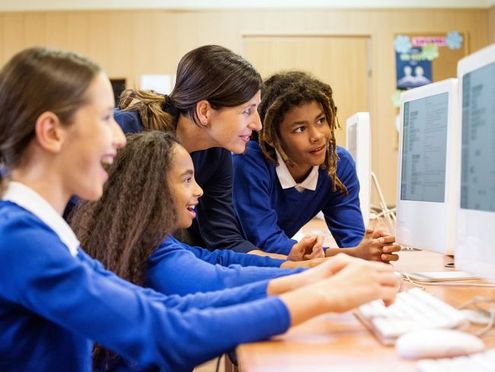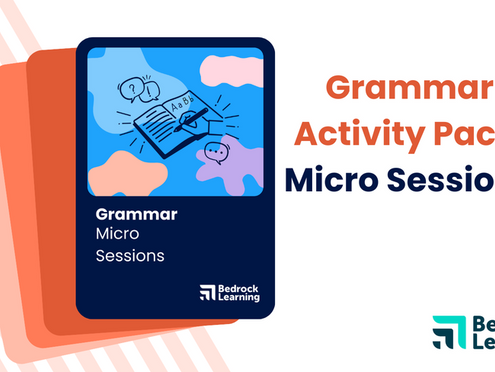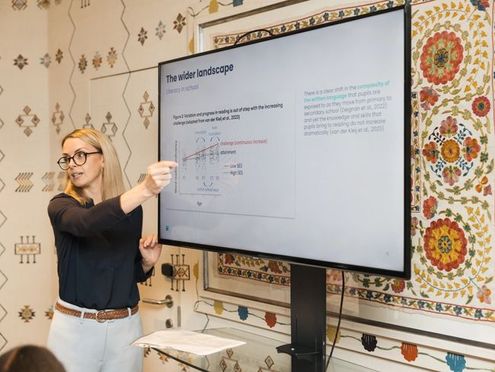What is oracy and why does it matter?
Coined in the 1960s by Andrew Wilkinson, oracy is the ability to communicate with others effectively and express yourself fluently. Beyond the vocabulary and grammar on the page, oracy refers to how you express ideas aloud.
However, the average UK learner only contributes four words per lesson.
Oracy is a powerful tool for learning and literacy. Strong oracy skills support reading and writing development, as well as boosting how learners gain understanding across the curriculum. English is the language with which we learn, so strong communication skills improve outcomes in every subject - and oracy has shown to be particularly beneficial for low-attaining learners.
The Speak for Change report states that oracy matters because it:
- Improves educational outcomes
- Underpins literacy and vocabulary acquisition
- Supports well-being and confidence
- Enables young people to have access to employment and thrive in life beyond school
- Develops citizenship and agency
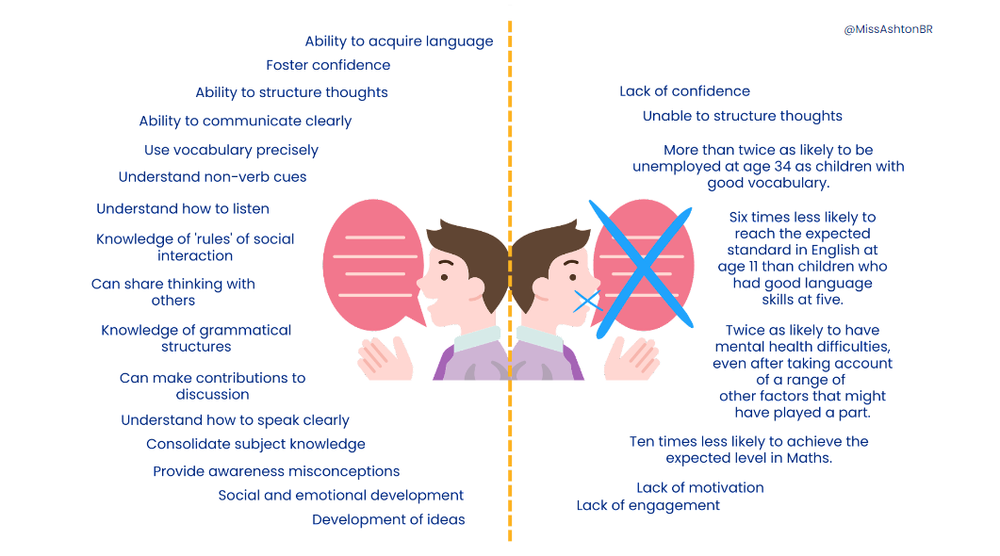
Much like how reading and writing support one another, strong literacy skills support effective oracy. Oracy is both an outcome and a process in literacy improvement.
Oracy is reciprocal - we pick up on words from the environment and emulate them in our own speech. In this way, possibly more so than vocabulary, teachers play a crucial role in carving out opportunities for structured talk.
What does high-quality talk look like?
Like the process of reading and writing, strong oracy skills require a combination of other skills and knowledge.
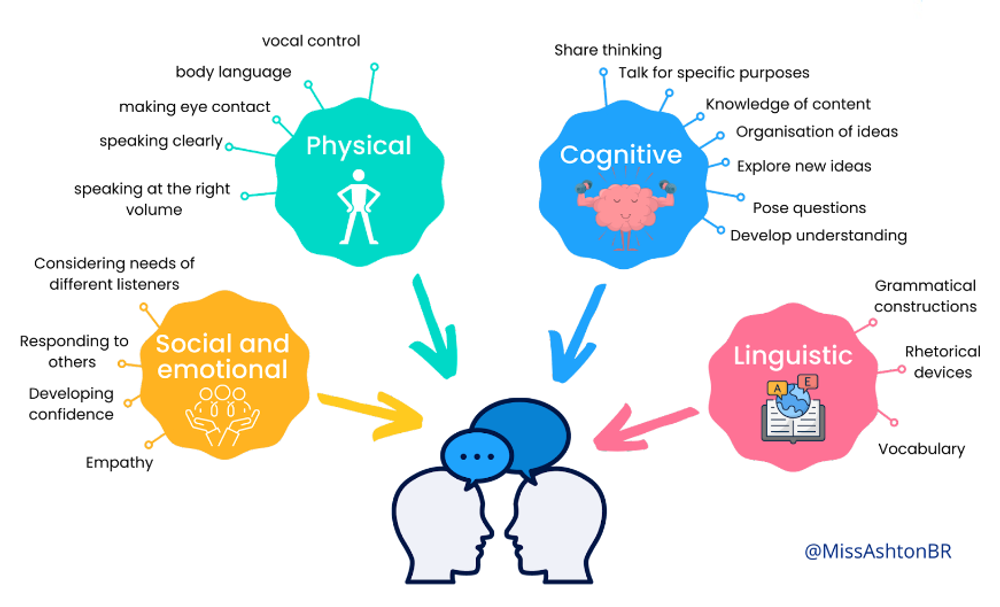
Read more in Voice21's Oracy Framework.
In order for learners to improve their oracy, supporting skills need to be tackled in a structured way - this is practised through high-quality talk.
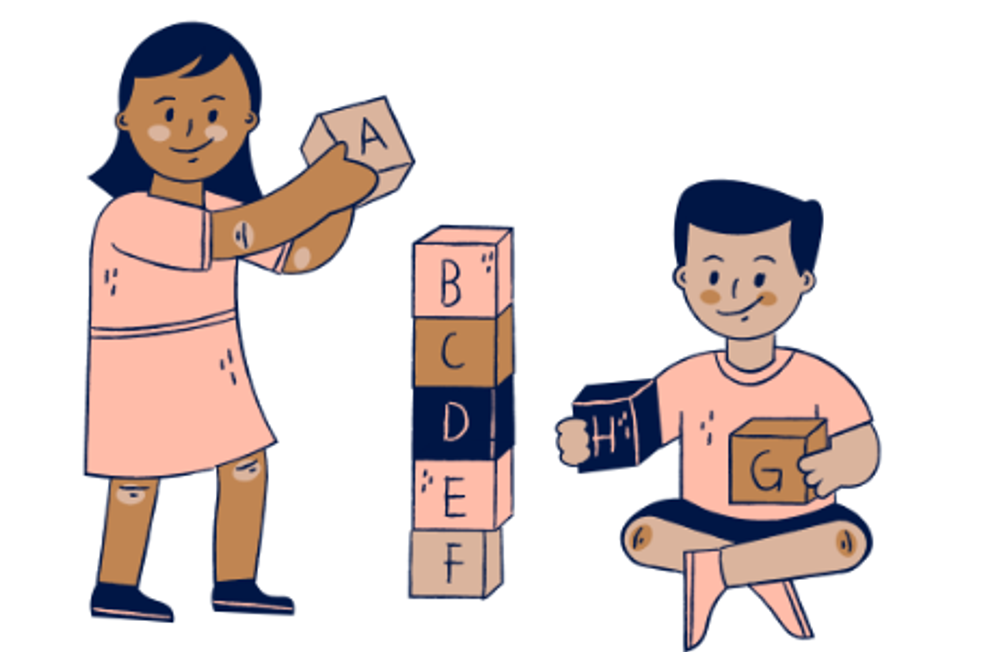
Spoken language enables us to do much more than share information - it enables us to think together.
How does structured talk improve oracy?
Vygotsky suggests that talk represents our thoughts. The higher the quality of our learners’ speech, the higher the quality of their thinking. This links to improved reading comprehension and writing skills, also, as learners organise their thoughts clearly and understand how to communicate effectively.
The EEF found that spending more class time on meaningful dialogue that encourages learners to reason, discuss, speculate, argue and explain, rather than just give expected answers, can boost their results in maths, science and English.
There are seven main types of talk that we can use for our learners’ studying
- Recitation talk
- Exploratory talk
- Socratic talk
- Dialogic talk
- Accountable talk
- Metacognitive talk
- Self-talk
Each of these seven types of talk is explained further in the full webinar, completed with strategies to put them to use in your classroom. Find more information on the webinar slides.
Watch the webinar
What practical steps can you take to boost learners' literacy?
Upgrade learner responses
- Rather than focusing on a mistake, repeat what the learner has said using the correct phrasing
- Level up their language by repeating sentences with more ambitious vocabulary
Paraphrasing
- Ask learners to paraphrase their peers' ideas
- Use think-pair-share
- Build and reflect on responses
Use images to structure independent talk
- As a teacher, fill in the blanks by providing key vocabulary, guiding the discussion and using questioning
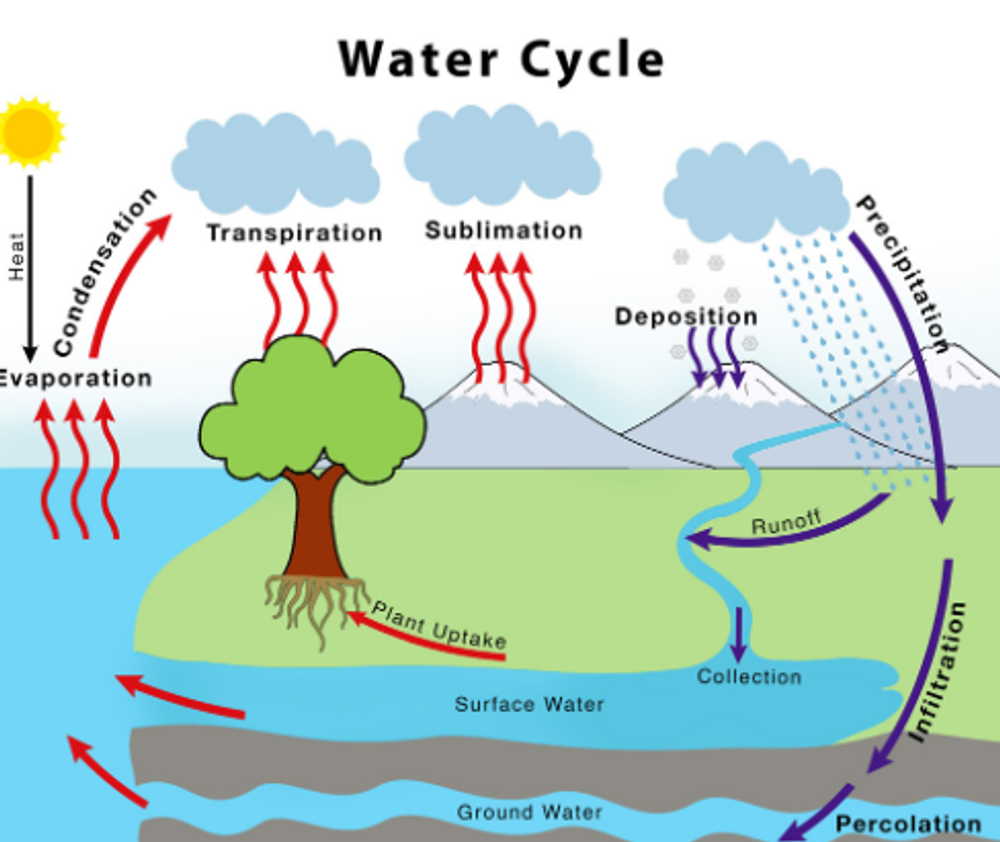
Ensure everyone's voice is valued
- Assign talk roles to make certain every learner has the opportunity to contribute
- ABC feedback - agree with, build upon or challenge
- Listening triad - encourage two learners to discuss a prompt and the third to record the conversation
Use reading questions to encourage discussion
- This can be linked to texts in every subject
Improve the quality of your interactions
- Allow adequate wait time after learners respond, allowing them to reflect and elaborate on their answer
- Ask open-ended questions that encourage discussion
- Respond to learners by encouraging further reflection
- Link current discussions to past discussions
- Provide learners with sentence stems to provoke discussion - I used these in the webinar itself and the response from attendees was fantastic!
- Model educated ways of using language
- Give appropriate verbal feedback - it should be specific, focused on their strengths, precise and productive
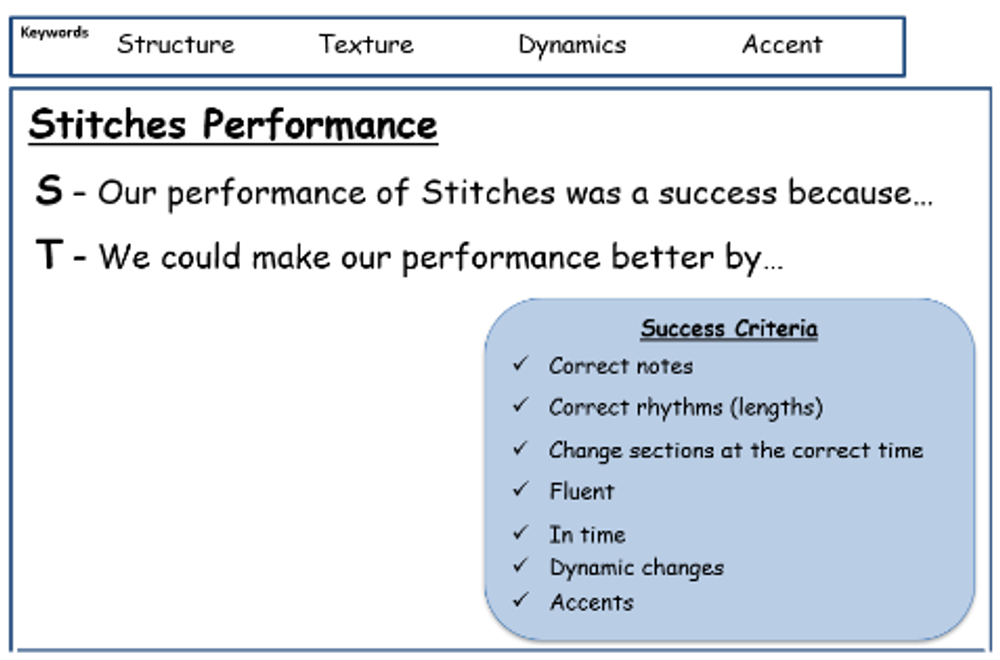
My top two to take away
- Make time for oracy in every classroom
- Consider the best strategies to promote high-quality talk across the curriculum to support literacy improvement
Conclusion
What a fantastic webinar!
Though participation on my webinars has always been great, I was still a little hesitant introducing the interactive element of thought stems and a prompt for the chat to discuss. However, I was blown away by the insightful conversation attendees had with one another! This just shows how effective those sentence stems are for facilitating high-quality talk in a respectful and inclusive way.
What this webinar reinforced for me was how important it is that every learners’ voice is heard. No matter which way a learner communicates, oracy strategies should give every learner the opportunity to participate in a way that makes them feel comfortable and included.


